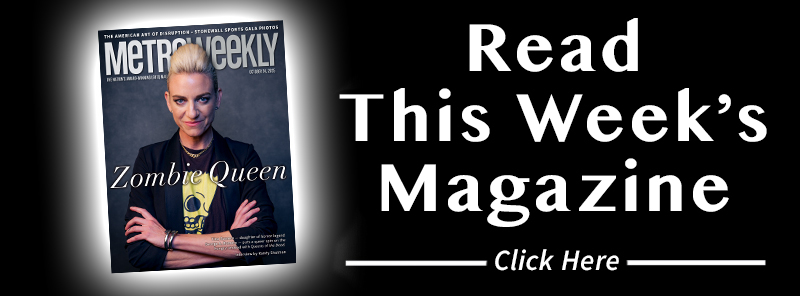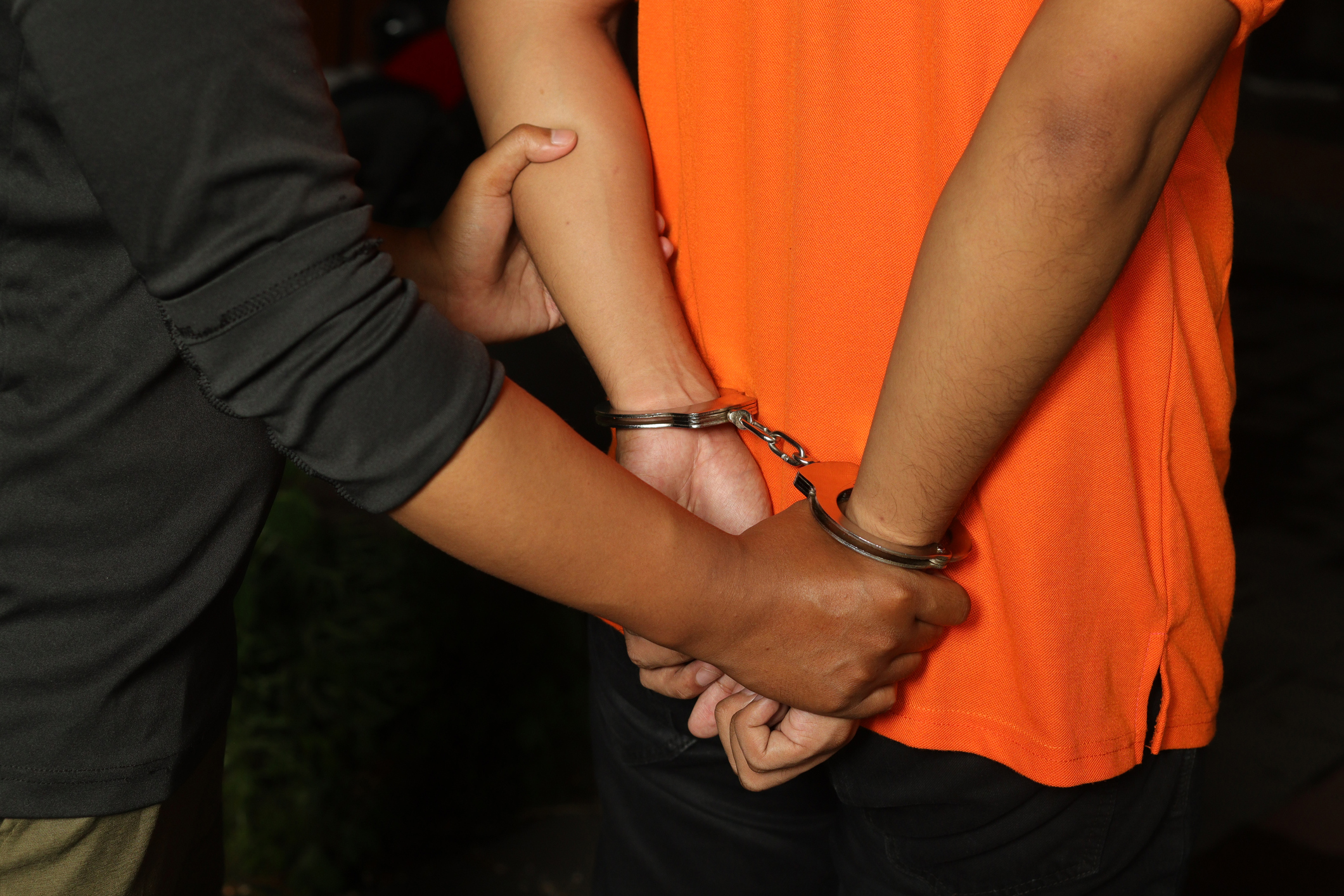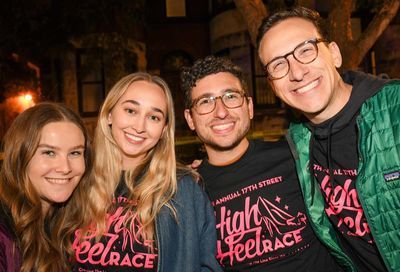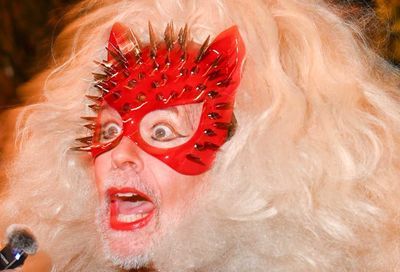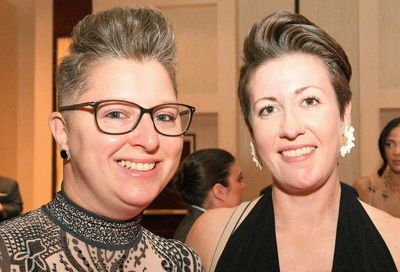Zoo Story
Alex MacLennan makes a run with his first novel, 'The Zookeeper'

If you’ve ever been to the Duplex Diner at 18th Street and Florida Avenue, it’s quite likely you already know Alex MacLennan. Maybe not well, but he could have taken your order or mixed your cocktail. He may have also been taking a researcher’s look at you for the sake of a character study.
His debut novel, The Zookeeper, is an exploration into how we humans conduct our lives — sometimes freely, sometimes captively. Either way, MacLennan’s novel asserts, it’s usually of our own making.
”I literally woke up one morning from a dream with the dregs of a story that wasn’t working — and couldn’t work, and I shouldn’t have tried to write,” he says of one morning in Provincetown during the summer of 2001 spent working, writing and recovering from a breakup. ”But I had the central questions: What are cages? How do we create cages for ourselves? That would be best interpreted through a zookeeper who struggles with his own cages. That’s where I started. It very quickly became a novel.”
The result has won some acclaim from MacLennan’s literary peers, like Andrew Holleran, who writes that MacLennan’s ”observations of daily life seem as natural as breathing.”
The daily life that exists in The Zookeeper revolves around Sam, who toils among the howler monkeys and golden lion tamarins at the National Zoo. As ”gay literature,” boy inevitably meets boy. In this case, it’s a local TV weatherman, Dean — the sort of hot, A-list, career-driven gay man who is pretty easy to spot in D.C. The city itself plays an integral role locals may well appreciate. Aside from the National Zoo, MacLennan takes his readers to Kramerbooks, the Uptown Theatre and a few other spots. Natives will doubtlessly recognize JR.’s, despite MacLennan’s fictional addition of a dance floor.
The Zookeeper, however, is not merely a recounting of familiar venues meant to entice D.C. readers. MacLennan holds an M.F.A. from American University, where he’s taught writing. He has also, in fact, worked at the San Francisco Zoo — albeit in the fundraising department. And his poetic style — ”The scent of pale oranges ached in Sam’s nose” — has a fanciful insistence on floating in a reader’s head for days.
Last week, on the eve of his 35th birthday, MacLennan spoke with Metro Weekly about The Zookeeper, often employing the same telltale air quotes of which his characters are very fond. Beyond that gesture, he has endearing way of mushing his hands together to express a blending of ideas, and a Jim Carrey-lite habit of squishing his facial features to emphasize the absurd. It’s hard not to be charmed.
METRO WEEKLY: Are you pleased with the reception the book has been getting?
ALEX MacLENNAN: Yes, utterly. I got my first bad review the other day.
MW: Where was that?
MacLENNAN: The Edge. It’s kind of like a slightly more sexed-up, glossier Metro Weekly with fewer articles and more listings. It’s in New York and New England. It was kind of a mean review, but it’s good to have it under my belt.
MW: How much promotion are you doing? Is it time consuming?
MacLENNAN: It is, but it’s more mentally consuming. And by choice. I bartend and wait tables to pay the bills, but I gave myself some leave. And I taught last year at American University, but with the end of the semester, I’m left with sort of nothing to do but this. It’s very happily time consuming.
MW: Are you getting royalties?
MacLENNAN: I will be getting royalties. It will not be much. The money for a first book from a tiny press is nonexistent. But the deck is very clear to work on my next book. I want to try and see if I can push out another book this year. I don’t know what that means in terms of what kind of living I’ll be making or what kind of day job I’ll have to get.
MW: That sounds ambitious.
MacLENNAN: This book is very close to my life, and I need to prove to myself that I can write a book that’s not.
MW: In that it’s very close to your life, do you share protagonist Sam’s disdain for ”Washington, D.C.’s particular brand of ambition”?
MacLENNAN: Yes and no. My instinct is that people for whom proximity to power is the goal, have a sad goal. My instincts say that is not an ultimately gratifying path. However, I do have dear friends who have been on fire to work the advocacy ladder and are now working and running non-profits and trying to make the world a better place. I love and respect that. My commentary is more on what I see to be a false ambition — not an ambition to do things that matter to you, but an ambition to look better to other people.
|
MW: Would you say D.C. is a snobby city in that sense?
MacLENNAN: It’s kind of intellectual. People aren’t snobby about things. Snobbiness in L.A. and New York would be, do you have Manolo Blahniks? Here, it’s about how close to someone’s influence you are: Do you go to dinner with senators?
MW: Do you prefer living in a place where people tend not to ask you right off the bat what you do for a living?
MacLENNAN: I don’t like that question, although I ask that question, too. I’ve had to learn [not to do it]. When I’m in San Francisco and there are all these people in the coffee shops all day long, it’s like what is wrong with all these people? I had to learn that being a maitre d’ at a great restaurant in San Francisco is more valuable than being a legislative director in some office. That’s having hit the jackpot. It’s a whole different cultural perspective about what matters and what’s of value. Those people are maitre d’s because they’re taking pottery classes three days a week and that’s what they want to do, or they’re performing in some drag show and they want to be able to sew their own costumes.
Selfishly, it’s kind of nice being the one in the crowd here in D.C. that took the other path. In D.C. everyone says, ”God, it’s so boring that I do this. You wrote a book!” And when I was in San Francisco, everyone was writing a book or had a small film in some festival. So it’s kind of selfishly fun trying to be an artist in a city where most people aren’t trying to be artists. It helps me feel unique.
MW: Beyond being gay, beyond having worked at a zoo, what else do you share with Sam?
MacLENNAN: I think Sam and I have the same desire to make everyone feel good, make everything okay, make sure everyone else is happy and taken care of. Sam, I think, hasn’t answered those questions and I like to think I have. Sam and I both are very close to our mother and our sister and a little bit less close to our dad.
[Unlike Sam,] my sister did not have a child out of wedlock while in college. My mother is not a non-profit administrator. My dad did not die.
I have been dumped by an ambitious man. I’m with someone now — very in love, very happy. But I had a boyfriend in San Francisco who was very concerned with me being the best I could be, according to his ideas. On our first Christmas together I was given a Men’s Fitness magazine and a bottle of chromium picolinate.
Then, coming out of that, I was in a relationship with another guy, who is a great guy. He was super-supportive but he had a real sort of focus on gay body culture. Ultimately, he and I broke up. He wanted to and I didn’t. That’s when I quit my job and moved to Provincetown.
MW: Was the closure at the end of The Zookeeper cathartic for you?
MacLENNAN: No. It was cathartic for Sam, though. I can’t lie and say that Sam’s journey didn’t start as the journey I was going through. I started writing The Zookeeper when I quit everything to move to the beach. Sam was going to quit everything and move to Brazil. But as I got to know Sam, that wasn’t true to him.
The publisher asked me to change the ending, which was Dean calling Sam to New York and Sam gets ready to throw everything aside to be with him, and then Dean dumps him again. So Dean is a real ugly asshole and Sam is crushed and wakes up the next morning and goes, ”Well, I’m better than this” and goes off to the Bronx Zoo on his own. Then there’s this whole long epilogue where he goes to eat dinner at the [Duplex] Diner and starts dating the third grade teacher — the neighbor, Nick. Many people felt like the epilogue wrapped it up too neatly, like ”Sam has a new job where he gets to go to Brazil three months of the year to do research and blah, blah, blah… and he has a new boyfriend who’s perfect.” And it wasn’t true. He needed to be on his own at the end to make his journey mean something.
MW: Do you have sympathy for the Dean character?
MacLENNAN: Yes. A friend of mine read the book and said, ”Dean’s the one who’s in a cage. The whole book is about Dean being in a cage.” And I thought, ”Wow, you’re right. I hadn’t thought of that.” So from that perspective, he’s just as trapped in this idea of what he’s supposed to be.
MW: Did you have any hesitation about making the book so D.C.-specific? Were you afraid you might alienate readers who don’t know D.C. at all?
MacLENNAN: I love reading books set in, say, India. You don’t just say, ”I was walking down the road,” but say, ”I was walking down Pondicherry Lane,” or whatever. For me, it’s that level of detail.
The Zookeeper was originally set in San Francisco, the very earliest bits, mainly because I knew the San Francisco Zoo best. Then I realized it just made it easier to ground the story in a place where I could go to all these places. It snowed [in the book], so I went to the National Zoo to see what it looks like in snow.
 MacLennan |
MW: How much research went into The Zookeeper?
MacLENNAN: When I was first working on it in Provincetown, I spent hours at the public library. There’s Grizmek’s Animal Life Encyclopedia, it’s like the iconic reference. I went there and looked up animals to figure out which animals worked best. I knew I wanted to do howlers as a starting point. There’s a zookeeper at the San Francisco Zoo whom I had a crush on who brought some howlers to the zoo. He would talk about how wonderful they were, so I kind of fell for them then. And they really spoke to me of Sam. They really fit who I thought Sam was in certain ways.
MW: From the acknowledgments at the end of the book it seems like you had a very supportive community around you. The opening dedication is to Brad Koerner, ”who read it in three days”?
MacLENNAN: Brad was a serious boyfriend, and he died. When I got the letter from Alyson Books asking for the manuscript, I [asked him], ”Oh, my God, can you read this for me so that I can send it out next week?” He took it home from work on Friday and read it straight through. He edited it for me and gave me all these notes, and that’s what I sent off.
He died in February 2005, very suddenly. We broke up in May 2004. It turned out that he had cancer. They never found it — he was just suddenly very sick. He was diagnosed the end of December and died in February. About a month later, Alyson said, ”Yes, we want your book.”
MW: He must hold a special place to share the dedication page with your mother and father.
MacLENNAN: I’m okay with it now. It was just my way of letting him know.
MW: There is the special acknowledgment for your father as well: ”And I know this novel is, in some important ways, about my father.”
MacLENNAN: Which he didn’t get. He said, ”What does that mean?” I said, ”Dad, it just means I love you.” He was like, ”Okay.” Meticulously crafted wording by me. [Laughs.] You know it’s because he’s dead in the book. My parents got divorced when I was 10, Sam’s father died when he was 10.
My mother, as much as she doesn’t like Sam’s mother, can see that this character is an active, engaged, good mother. My sister, even though she’s hates Sam’s sister and thinks it’s just me exaggerating the worst of her, can see that she’s a character.
MW: Because so many of the story’s components are close to home, literally, do you find yourself having to explain to people that this is fiction? Is it annoying?
MacLENNAN: From the people I know and love, who see themselves in it, it’s not annoying. And they’re all excited for me and proud to be in it, even if, as my sister said, ”You made me an ambitious, SUV-driving bitch.” I know it’s a lame thing, I think all writers say everyone is everyone, and everyone is me, but it’s true. There’s nothing of my mom in Sam’s mom — except the [end of our childhood] ”Friday night dates,” which did kind of break her heart a little bit.
MW: Did you have that conversation with her?
MacLENNAN: Not at the time, no. But when she read that scene, she said, ”I thought those were fun for us.” And I said, ”They were.” In retrospect, I should have probably gone out with my friends. It’s all sounding more and more autobiographical the more we talk. That’s why I don’t get upset when people ask, ”Is it you?”
MW: Considering there is a ”gay literature” tag on your novel, what do you think of the genre?
MacLENNAN: The thing I like about my book is that Sam is gay, in love with a gay man, they have sex, they have gay friends — but it’s not about being gay. I
don’t even know what ”about being gay” means anymore.
I don’t personally identify with gorgeous gay men dancing all night in Manhattan and going to Fire Island for the weekend. That is as alien to me as… I always get stuck when I start to say this, but that’s as alien to me as Jamaican immigrants in London in the ’40s. But I tend to prefer books about Jamaican immigrants in London in the ’40s than I do about men in Fire Island. Or the most beautiful personal trainer in L.A. who falls in love with the closeted movie mogul. I do think there’s a decent amount of lowest-common-denominator, sexually driven [gay] fiction and I feel like that’s starting to be leavened with fiction that just has gay characters. I go to Lambda Rising to find books. I love gay books, and I love seeing gay characters. Gay fiction should be able to go anywhere it wants, and do anything it wants.
MW: Is there any chance that Zookeeper will be made into a movie? Would you like that?
MacLENNAN: I love the idea.
MW: Would you love the idea if someone else wrote the screenplay?
MacLENNAN: Probably, because I have no idea how to write a screenplay. The thing I’ve always said is that this is a perfect vehicle for, like, Reese Witherspoon or Sandra Bullock, if Sam was a straight zookeeper dealing with these issues — and if Hollywood wants to do that and pay me a Hollywood payday, that’s fine. [Laughs.] But it would be hard, because I know what Sam looks like. I’ve already learned that my vision of Sam is very disconnected from other peoples’ vision of Sam. And so it would be interesting to see how another person would interpret it.
MW: Of the people who have given you an interpretation of Sam, do they always hit some similar chords?
MacLENNAN: He’s tall, he’s handsome, he has good arms. That’s what people see. I see him as tall, not very handsome, steel-gray bristly hair, chubby, big arms. It’s very important to me that Sam’s not really handsome. But people seem to see him as really handsome. Sam is not handsome!
MW: My favorite point in the book is Sam’s sort of sickly stumble down 17th Street, because it’s humiliating. I appreciate stories of humiliation because I think they’re the most telling about the human condition. Will you share a personal story of your own humiliation?
MacLENNAN: I feel that there’s some humiliation that other people wouldn’t consider humiliation. In San Francisco, my big, hyped reading — where they had a bulletin board outside for a week announcing it, and it was my seven friends and not another soul. There was one non-friend — who walked out halfway through. In the scheme of the world, that’s not a humiliation. But to me I felt like, ”Wow, I can’t even get one person here, in the gayest city in the world, where I used to live.” I hate readings. I think readings are humiliating. I hate them. They terrify me. I’m so invested in getting people there and having readings be good for the bookstore and making sure the books get sold. So, inevitably I feel like they’re failures, even when they’re great.
MW: The way you write about Washington, you’re affectionate toward the city. Does that mean you plan to stick around?
MacLENNAN: That’s a very funny question right now. The book I’m trying to write now is set in London and I lived in London for a summer when this sort of started. I would love to go to London for a year while I work on this book. If anyone wants to fund me to go to London for a year, I’ll take it. [Laughs.] My boyfriend and I — he’s from Texas and I’m from here — want to be here, but we’re starting to have conversations about whether we would go somewhere else.
I think it’s ridiculous to think that I would have to live in New York. As a writer with one book, in New York I would be one of a million. Here I get to be one of a much smaller group.
I don’t think anyone can count on anyone sticking around indefinitely. That’s a false premise. No one knows what he’s going to do tomorrow. My plan is to be here for the rest of my life, with, hopefully, a couple of experiences — a couple of months, a couple of years, whatever — in other wonderful places. But the big picture is this is where my home is. I grew up in D.C. and I didn’t like it, and I was anxious to get out. Coming back from San Francisco, I didn’t like it. I grew to like it. D.C. has grown a lot in the last couple of years and it has a different kind energy now and a different style. There’s a food culture here now. There’s a ”culture” culture here now that I don’t think was here. Or maybe I just finally found it.
MW: There’s a question that we ask our coverboys that I’m compelled to ask you: If you could be any animal, what would it be?
MacLENNAN: Oh, God, a dolphin. I worry about the cleanliness of the ocean these days and the commercial fishing — but I think a dolphin in the Caribbean or Hawaii or even the north Atlantic.
MW: They can be sort of violent from what I understand.
MacLENNAN: Dolphins?
MW: Yeah, gang raping and that sort of thing.
MacLENNAN: You know, dolphins are very, very sexual. A girl I knew trained dolphins at a place called Hawk’s Cay in the Florida Keys. They were doing a project with the Shedd Aquarium in Chicago or something, and they were collecting dolphin semen. She said it was so easy. ”All you have to do is train them to lie on their backs, give them a couple of rubs — It’s easy! They come all the time!”
I wouldn’t be that kind of dolphin. [Laughs.] I want to be a dolphin because they’re powerful and beautiful. They seem happy.
Alex MacLennan reads from The Zookeeper at 1 p.m., Saturday, July 15, at Politics and Prose, 5015 Connecticut Ave. NW. For more information, call 202-364-1919.
Support Metro Weekly’s Journalism
These are challenging times for news organizations. And yet it’s crucial we stay active and provide vital resources and information to both our local readers and the world. So won’t you please take a moment and consider supporting Metro Weekly with a membership? For as little as $5 a month, you can help ensure Metro Weekly magazine and MetroWeekly.com remain free, viable resources as we provide the best, most diverse, culturally-resonant LGBTQ coverage in both the D.C. region and around the world. Memberships come with exclusive perks and discounts, your own personal digital delivery of each week’s magazine (and an archive), access to our Member's Lounge when it launches this fall, and exclusive members-only items like Metro Weekly Membership Mugs and Tote Bags! Check out all our membership levels here and please join us today!








